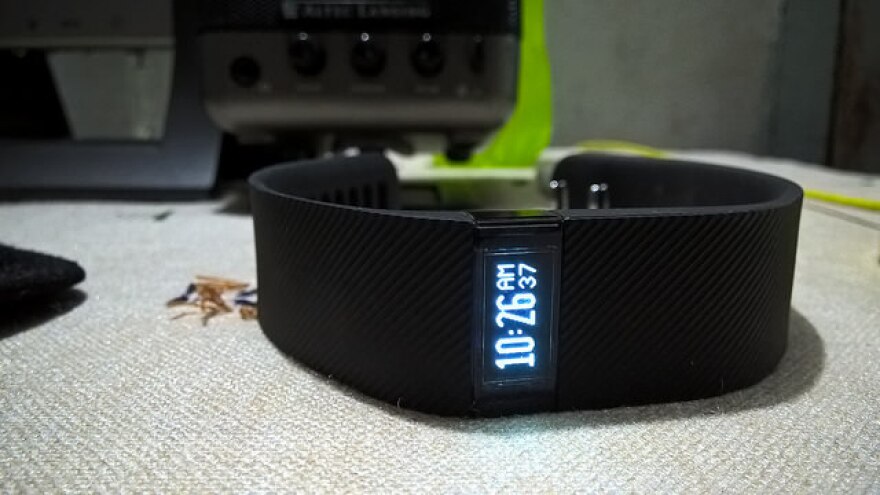| This week - That weight-loss tracker on your wrist sure makes you look fitter, but it might not work. ... An EpiPen two-pack costs $69 to make and Mylan sells it for $600, so why is its CEO saying the device isn't as profitable as everyone thinks? ... A cardiologist converts to veganism, and he's telling patients if it's right for them. ... These and more ... |
Your Weight-Loss Watch Might Not Help You Lose Weight
A new study says those who used health wearables lost less weight than those who just watched what they ate and exercised more -- all on their own. One researcher observes: "People would say, 'Oh, I exercised a lot today, now I can eat more.' And they might eat more than they otherwise would have." For NPR, Erin Ross takes a closer look at the study.
Beware The Dangers Of Snake-Oil Treatments For Autism
For The Atlantic, Alisa Opar reports parents of children with autism are often desperate to treat their kids, trying "numerous vitamin supplements, topical ointments, restrictive diets, chelation, hyperbaric oxygen therapy, brain scans, a so-called detoxification system and stem-cell therapy." Some even try psychics. But, in addition to being expensive, these "treatments" offer little relief.
Paying More For Drugs That Work Better: A Good Idea, But Can It Work?
With Medicaid costs exploding, states are experimenting with paying more for drugs that do a better job of controlling disease. The concept is being tried in other parts of the health care system, but drugmakers, who set their own prices, have historically fought any kind of price control. For Stateline, Michael Ollove looks at the issue.
Mylan's CEO Says Profit On EpiPens Isn't As Big As You Think
Mylan's CEO told a congressional committee that the device maker makes $100 per two-pack of EpiPens. The devices cost $69 to manufacture and $600 for patients. Is that crazy? Nathan Bomey for USA Today reports that the executive defended the cost Wednesday.
Quick Hits
People play Pokémon Go while they drive. It's an exceedingly bad decision, and researchers are trying to figure out how widespread it is.
This chief of cardiology at a hospital has gone vegan, and he's ready to tell youwhy you might consider it too ... or not.
Are men responsible for humanity's relatively long life live? Their flabbiness may hold the answer.
How ZIP codes nearly masked the lead problem in Flint, Michigan.
"I’m the health reporter covering the Zika story here at WLRN in Miami, and I’m a pregnant woman."




